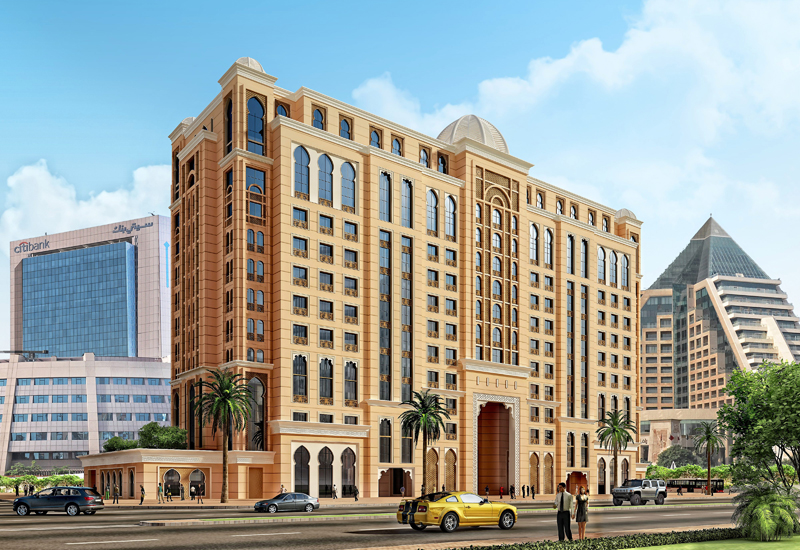Since Dubai Healthcare City opened in 2002, medical tourism has been high on the agenda of the Dubai government. But since the launch of its medical tourism vision in 2014, when plans were announced to attract half a million medical tourists by 2020, statistics from Dubai Health Authority (DHA) revealed that in 2015, there were 630,831 medical tourists (including domestic and international patients). Of them, international tourists numbered 298,359, accounting for 46% of the total traffic.
According to Medical Tourism Wellness Council consultant Linda Abdulla, medical tourism is playing a significant role in boosting Dubai’s economy by attracting visitors from all across the globe. “This could potentially boost the economy by AED 2.6 billion (US $0.71bn) a year by 2020 with an increase in the annual revenue by 13% every year in the next four years,” she said.
“When we submitted Dubai’s medical tourism strategy to the Executive Council in 2014, our initial expectation for 2016 was to attract 170,000 medical tourists. However, our reports show that we exceeded our milestone for the year,” Abdulla noted.
With the increased emphasis on medical tourism, the potential of hotel-hospital partnerships is rearing its head. In countries like Thailand and Mexico, where medical tourism has taken off, some hotels offer special amenities targeted at medical consumers, such as on-site labs for blood work, pool lifts, extra electrical outlets or varying table heights to accommodate patients in wheelchairs. And now, the UAE is trying to break into these established medical tourism markets.
Time Royal Hotel — which is set to open in Dubai Healthcare City in 2017 — is hoping to tap into the global medical tourism demand. Time Hotels CEO Mohamed Awadalla told Hotelier how the hotel plans to set itself apart from other competition located in and around Dubai Healthcare City.
“At Time Royal Hotel, we will have a medical team present at the hotel with a dedicated medical receptionist. There are 22 specially furnished suites equipped with hotel beds, with provision for out-patient procedures, such as dialysis. There will be a consultation room and kitchenette facility as well as a spa, which will provide medical support and therapeutic treatments and medical exercises,” he said.
The needs of its patients/guests is factored into Time’s hospitality strategy. “Our brand promise is to place the guest at the very centre of everything we do; this will be no different from a medical perspective. On a daily basis we place the utmost importance on customer service excellence, respect and teamwork. This will be carried into Time Royal Hotel & Spa to ensure every guest feels welcomed and comfortable in what can often be a traumatic time, particularly after major surgery,” Awadalla added.
A special team with a medical background will be present at the hotel to assist with all basic needs of the patients. It will also provide 24/7 assistance through affiliated health and medical centres for patients staying on-property.
According to Awadalla, most established medical tourism markets have special tie-ups with nearby hospitals to offer their patients discount deals or medical packages. “We strongly believe that partnerships and sponsorship are key to attracting medical tourists and so it is important we are affiliated with medical centres in the nearby vicinity to offer guests maximum resources and services. To that end, we will tailor packages with health care providers, while we will also have the capability to host medical seminars,” he said.
With a strategy to increase medical tourism numbers, Dubai has come up with a digital plan to woo medical tourists. Since April 2016, international medical tourists have been able to book their procedures online, along with a range of healthcare-related services at a newly launched web portal.
Dubai Health Experience (DXH) which provides health, travel, hospitality and visa services online, and the Dubai Health Authority (DHA) portal enables people to log on to the website and book procedure packages — including wellness, cosmetic and dental services, ophthalmology, orthopaedics, physiotherapy and specialised medical tests — at any one of 26 private and public hospitals in Dubai so far participating in the programme. DXH also allows guests to access other incentives, such as discounted hotel stays.
“Travel agents and travel partners play a very important role in promoting medical tourism as they are the first point of contact for any traveller. Strategic partnerships with local healthcare authorities and facilities will be an important factor for any travel agent to excel in medical tourism and create develop customised travel packages, work on response time and also ensure smooth patient journey,” Abdulla said to Hotelier.
Through the web portal (www.dxh.ae), medical tourists can find the right healthcare packages customised by travel partners. which include flight bookings, hotel accommodation and other ground services. According to DXH, travel agencies and ground handling partners can plan the trip for the accompanying family members at the same time and ensure that the stay is more like a rejuvenating holiday experience.

| Advertisement |









 Search our database of more than 2,700 industry companies
Search our database of more than 2,700 industry companies










May 22, 2017 , India
Absolutely True. Asia is increasingly becoming a preferred destination for medical tourism due to cost effective rates and world class medical facilities and doctors. India, Thailand and Singapore are leading the pack here. Among other places, even brazil has seen an immense rise in medical touri...